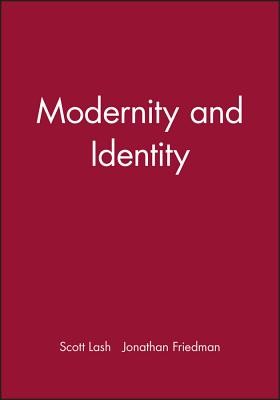
- Išsiųsime per 12–18 d.d.
- Leidėjas: Blackwell Publishers
- ISBN-10: 0631175865
- ISBN-13: 9780631175865
- Formatas: 15.3 x 22.9 x 2.4 cm, minkšti viršeliai
- Kalba: Anglų
- Extra -15 % nuolaida šiai knygai su kodu: ENG15
Modernity and Identity (el. knyga) (skaityta knyga) | knygos.lt
Atsiliepimai
Aprašymas
Modernity and Identity is a groundbreaking collective work which announces a radical new departure within contemporary debates on modernism and postmodernism.
While dominant conceptions of both modernism and postmodernism are centered around motions of statis and fixity, for most of the otherwise quite diverse writers in this book, modernity is a matter of movement, of flux, of change and of unpredictability.
Modernity and postmodernity are shown to mean, not the 'end of the subject' but the transformation and creation of new forms of subjectivity. Anthropological concepts are brought squarely into the heart of the modernity controversies, which are then recast in the context of tradition, globalization and of the crisis of identity in a newly de-centred world system.
The possibility of a third way is opened up, rejecting the opposition between the impersonal rationality of high modernism and the rationalist anti-ethics of postmodernism. The vision in this book is that of another modernity, which counter-poses Baudelaire to Rousseau, and loyalist ethics to abstract blueprints for social and political reorganization.
This book will be essential reading for students of sociology, cultural studies, literary theory, anthropology, urban studies and philosophy.
EXTRA 15 % nuolaida su kodu: ENG15
Akcija baigiasi už 3d.08:30:30
Nuolaidos kodas galioja perkant nuo 10 €. Nuolaidos nesumuojamos.

- Leidėjas: Blackwell Publishers
- ISBN-10: 0631175865
- ISBN-13: 9780631175865
- Formatas: 15.3 x 22.9 x 2.4 cm, minkšti viršeliai
- Kalba: Anglų Anglų
Modernity and Identity is a groundbreaking collective work which announces a radical new departure within contemporary debates on modernism and postmodernism.
While dominant conceptions of both modernism and postmodernism are centered around motions of statis and fixity, for most of the otherwise quite diverse writers in this book, modernity is a matter of movement, of flux, of change and of unpredictability.
Modernity and postmodernity are shown to mean, not the 'end of the subject' but the transformation and creation of new forms of subjectivity. Anthropological concepts are brought squarely into the heart of the modernity controversies, which are then recast in the context of tradition, globalization and of the crisis of identity in a newly de-centred world system.
The possibility of a third way is opened up, rejecting the opposition between the impersonal rationality of high modernism and the rationalist anti-ethics of postmodernism. The vision in this book is that of another modernity, which counter-poses Baudelaire to Rousseau, and loyalist ethics to abstract blueprints for social and political reorganization.
This book will be essential reading for students of sociology, cultural studies, literary theory, anthropology, urban studies and philosophy.


Atsiliepimai